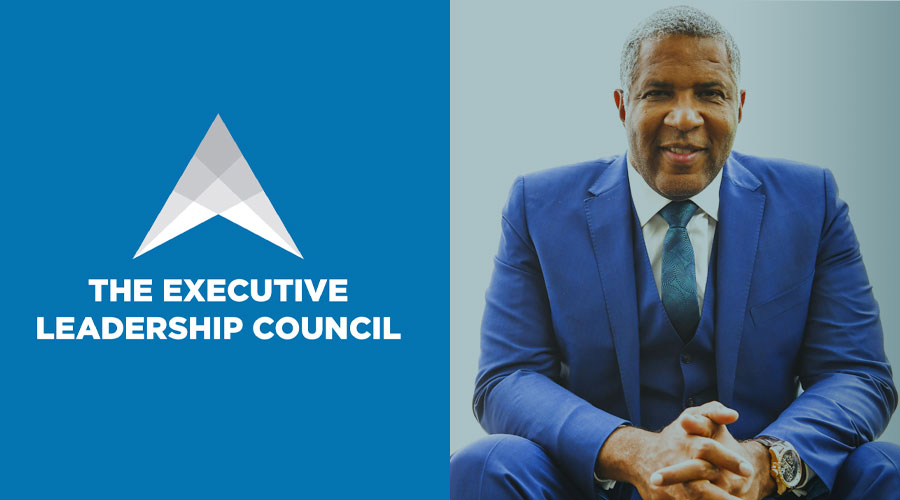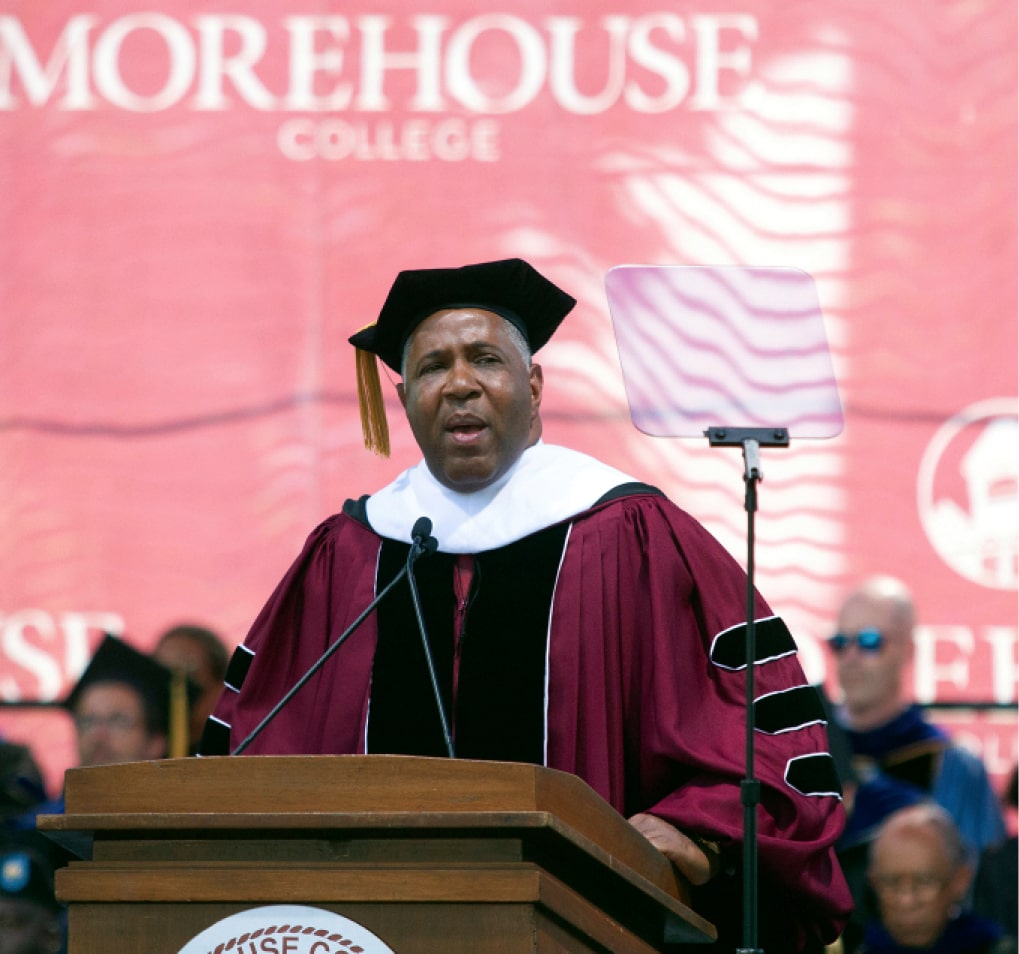On May 18, 2021, Robert F. Smith was the featured keynote speaker at the virtual Black Men in Leadership Virtual Conference, hosted by The Executive Leadership Council. Thinking back on his own “origin story,” Smith spoke about the challenges and successes that stemmed from his particular upbringing in Colorado, and the leap of faith he took concerning his career that came about with support from his grandfather.
The Strength of a “Beloved Community”
The term “beloved community” was popularized by Dr. Martin Luther King, Jr., who found deeper meaning in the phrase as an embodiment of peaceful goodwill. This utopian goal, noted by The King Center as a key tenet of their global philosophy, was determined as realistic and achievable only through a committed critical mass of people.
“Dr. King’s Beloved Community is a global vision, in which all people can share in the wealth of the earth. In the Beloved Community, poverty, hunger and homelessness will not be tolerated because international standards of human decency will not allow it. Racism and all forms of discrimination, bigotry and prejudice will be replaced by an all-inclusive spirit of sisterhood and brotherhood,” notes The King Center.
Growing up in Denver, Colorado, Smith was the fourth generation of his family to live in the state. He grew up during a period when racial segregation was typical across the country, and found that his “beloved community” — as he thinks of it even now — where families, or single-parents in some cases, together with the community, really focused on making things better for each other. This beloved community was key to his success as a student, and as a businessman today.
In addition to being a local educator, “my dad also led a civic association,” Smith recalled. “It was called North City Park Civic Association. And one of the things that he focused on was… how our community would be treated in terms of various things like social services. At the time there used to be a lot of snow in Denver. And our neighborhood was typically one of the last to get snow plowed — and there would be 2-3 feet of snow. And there were a lot of working parents who had to get to work, some via bus, some by carpool, whatever it might be, and the streets would be completely clogged with snow, and of course they couldn’t get to work, which creates a problem for them ultimately when it comes to keeping their job, etc… My father saw this as a real issue, and literally pulled together the civic association — and this was just one of the issues they focused on, in addition to voting rights, head start programs, etc. that he and a group of African American parents focused on — to ensure that our community had a voice that was heard.”
Smith continued to explain how the engaged African American community he grew up in took care of everyone in the neighborhood, even when their parents weren’t around because they were at work.
“And I just remember growing up in that environment, first of all, I remember seeing a ‘blanket of care’ across the children…Expressed in multiple ways from the time in which you were sent to the store to go buy something and….people looked out for you on the way there and back and of course reported on you from if you did something like, you know, throw rocks or tease the dog (and you heard about it when you got home). [As well as later] when we went to the state of desegregation and forced busing, and when we got home, we got home a bit earlier than some of the parents. And some of the parents would take in the kids…And would make sure, like in my case, that the older kids in those rooms and houses would educate us and tutor us and the parents would make sure we had some nutritious snack [to eat] until our parents got home from work. So I grew up very much in that form of a community,” he said.
Taking a Leap: The Launch of Vista Equity Partners
Asked when he decided to start Vista Equity Partners, Smith reminisced about the events and conditions that led to leaving his role at Goldman Sachs, and to go out on a limb to start a business in a field that nobody else was servicing.
In fact, the path that Smith finds himself in now in technology and private equity investments, started with a summer in high school spent as an intern at Bell Labs. “The exposure to the world of technology through the lens of what was then the leader in technology at Bell Labs helped me understand the impact and power that technology would and could have,” Smith said. He gave an example of the possibilities of efficiency that technology of the time offered, such as adding a particular piece of equipment (the Merlin PBX) to switch phone calls through a system that until then had been manually performed by thousands of clerks.
As Smith worked in chemical engineering after earning his undergraduate degree at Cornell University, he focused on projects that increased productivity and efficiency. He also saw through the rise of the use of data analysis, “the implications and impact that technology would have not only in the plant environment but the office environment as well,” he reminisced.
“…The realization that the efficiency of this product that would ultimately be sold — which would be called software… — was going to far outstrip, in terms of the demand, the cost of implementing that software….What you see today is a commodification of the hardware in all the values of the software, but no one [at the time] was focused on doing buyouts in enterprise software. As I had a chance to meet literally hundreds of software executives from some of the biggest companies…to some of the smallest, what I realized was that none of them actually did things the same. And being a process engineer, [I knew] the most efficient thing you could do is kind of do the same thing over and over — repeatable processes…If you brought a set of standardized conditions to a software company, you’d probably get a standard result,” Smith noted.
But of course, he had this realization while he was still working in a prestigious role at Goldman Sachs. His grandfather, Smith noted, thought he was crazy to leave a great job for such a risk to start his own company. Smith had long talks considering the pros and cons of the decision he was contemplating, and his grandfather eventually came around to see the benefit of the risk.
“What [my grandfather] realized that I saw was the importance of being an independent businessman,” Smith said. “As an African American, having an opportunity to do something that no other African American heretofore had done, and he said and if you don’t do that, how are you really going to feel about yourself? And if you’re going to take a risk, take that risk on yourself.”
“If you’re going to take a risk, take that risk on yourself.” – Robert Smith
Smith encouraged the Black executives watching the event to consider their own feelings on risk, and hoped they would think about the advantages of taking on more risk in terms of starting their own businesses.
Smith finished the hour-long talk answering questions from attendees on topics including dealing with “imposter syndrome,” the prospect of assessing risk, access to capital and doing the hard work to achieve success. You can watch all of Smith’s conversation at the Black Men in Leadership event in this video:







